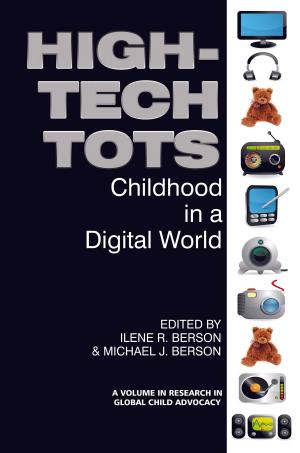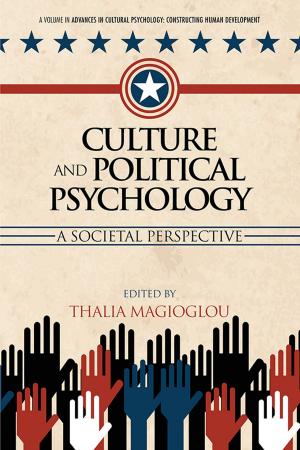Hacking Education in a Digital Age
Teacher Education, Curriculum, and Literacies
Nonfiction, Reference & Language, Education & Teaching| Author: | ISBN: | 9781641132022 | |
| Publisher: | Information Age Publishing | Publication: | April 1, 2018 |
| Imprint: | Information Age Publishing | Language: | English |
| Author: | |
| ISBN: | 9781641132022 |
| Publisher: | Information Age Publishing |
| Publication: | April 1, 2018 |
| Imprint: | Information Age Publishing |
| Language: | English |
In this collection, the authors put forth different philosophical conceptions of “hacking education” in response to the educational, societal, and technological demands of the 21st century. Teacher Educators are encouraged to draw on the collection to rethink how “hacking education” can be understood simultaneously as a “praxis” informed by desires for malice, as well as a creative site for us to reconsider the possibilities and limitations of teaching and learning in a digital era. How do we hack beyond the limits of circumscribed experiences, regulated subjective encounters with knowledge and the limits imposed by an ever constrained 21st century schooling system in the hopes of imagining better and more meaningful futures? How do we foster ingenuity and learning as the end itself (and not learning as economic imperative) in a world where technology, in part, positions individuals as zombie-like and as an economic end in itself? Can we “hack” education in such a way that helps to mitigate the black hat hacking that increasingly lays ruin to individual lives, government agencies, and places of work? How can we, as educators, facilitate the curricular and pedagogical processes of reclaiming the term hacking so as to remember and remind ourselves that hacking’s humble roots are ultimately pedagogical in its very essence? As a collection of theoretical and pedagogical pieces, the chapters in the collection are of value to both scholars and practitioners who share the same passion and commitment to changing, challenging and reimagining the script that all too often constrains and prescribes particular visions of education. Those who seek to question the nature of teaching and learning and who seek to develop a richer theoretical vocabulary will benefit from the insightful and rich collection of essays presented in this collection. In this regard, the collection offers something for all who might wish to rethink the fundamental dynamics of education or, as Morpheus asks of Neo in The Matrix, bend the rules of conventional ways of knowing and being.
In this collection, the authors put forth different philosophical conceptions of “hacking education” in response to the educational, societal, and technological demands of the 21st century. Teacher Educators are encouraged to draw on the collection to rethink how “hacking education” can be understood simultaneously as a “praxis” informed by desires for malice, as well as a creative site for us to reconsider the possibilities and limitations of teaching and learning in a digital era. How do we hack beyond the limits of circumscribed experiences, regulated subjective encounters with knowledge and the limits imposed by an ever constrained 21st century schooling system in the hopes of imagining better and more meaningful futures? How do we foster ingenuity and learning as the end itself (and not learning as economic imperative) in a world where technology, in part, positions individuals as zombie-like and as an economic end in itself? Can we “hack” education in such a way that helps to mitigate the black hat hacking that increasingly lays ruin to individual lives, government agencies, and places of work? How can we, as educators, facilitate the curricular and pedagogical processes of reclaiming the term hacking so as to remember and remind ourselves that hacking’s humble roots are ultimately pedagogical in its very essence? As a collection of theoretical and pedagogical pieces, the chapters in the collection are of value to both scholars and practitioners who share the same passion and commitment to changing, challenging and reimagining the script that all too often constrains and prescribes particular visions of education. Those who seek to question the nature of teaching and learning and who seek to develop a richer theoretical vocabulary will benefit from the insightful and rich collection of essays presented in this collection. In this regard, the collection offers something for all who might wish to rethink the fundamental dynamics of education or, as Morpheus asks of Neo in The Matrix, bend the rules of conventional ways of knowing and being.















